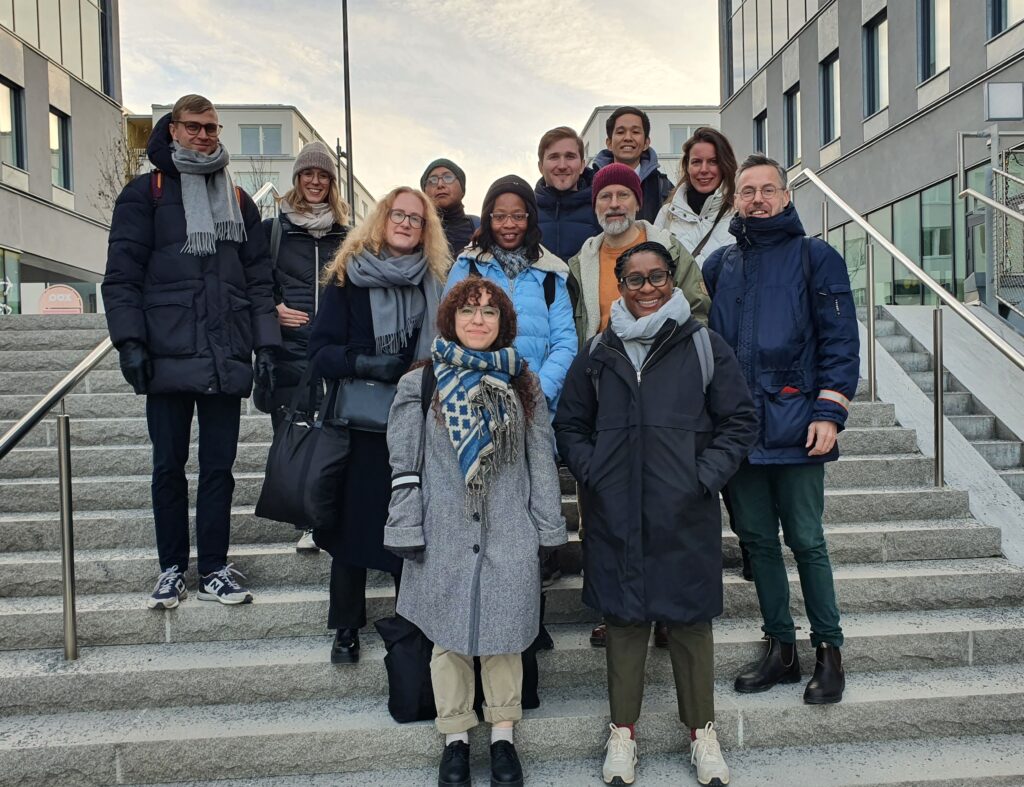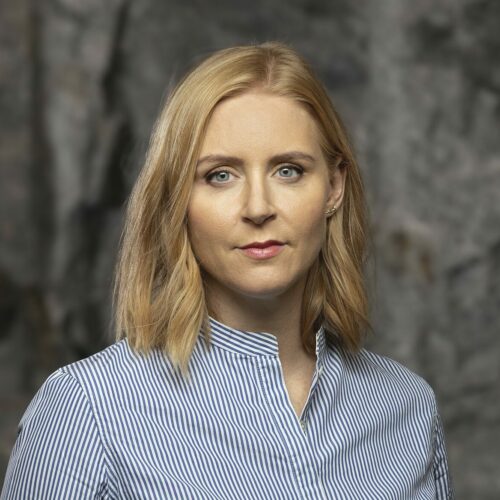Mistra Geopolitics includes a four-year research school programme tasked with training the next generation of scholars in methods, theories and data collection for advanced geopolitics and sustainable development analysis.
Mistra Geopolitics Research School
The research school contributes to the overall goal of the research programme by exploring the interaction between geopolitics, human security and global environmental change, and offering training to doctoral students. Hosted by Stockholm University, the research school invites scholars to participate in its activities, seminars and workshops, where senior scholars offer feedback on the work of doctoral students and discuss policy outreach and research communication issues.
The most recent workshop took place at Stockholm University in December 2022. Researchers within the programme and PhD students discussed the latest publications and attended a presentation titled “United Nations Security Council Politics: the Role of Switzerland” by guest speakers Lucile Maertens and Sara Hellmüller.
Interviews with the scholars’ was performed for the Mistra Geopolitics annual report 2022, and executed by Ana Calvo.

The research programme recruited seven PhD students in Phase II, and two students defended their thesis in 2022. All PhD students pursue their studies at one of the partner universities in the research programme: Linköping University, Lund University, Stockholm University and Uppsala University. Three PhD students, hosted by Linköping University and Stockholm University, joined the programme as visiting PhD students for three months in autumn 2022.
Our visiting PhD candidates
Meet Kanin Laopirun
Q: Why did you decide to join the Mistra Geopolitics research school?
A: I joined because I wanted to expand my research on climate and environmental issues, especially from a geopolitical perspective. I was also keen to learn from researchers with different expertise as well as contribute to the programme.
Q: What is your research area of interest?
A: I am interested in environmental economics, policy and governance in Southeast Asia. My research is focused on the plastic circular economy in Thailand and solving transboundary marine plastic pollution.
Taking account of Thailand’s regional position in the Association of Southeast Asian Nations (ASEAN), I investigate an assessment framework to measure the status and extent of how plastics such as PET, HDPE and PP are produced and used by industries, consumers and trade. In addition, I pay attention to how plastics are managed and recycled back into new materials within the economy.
Q: What are your thoughts on our ability to address climate change and how do you think your work can contribute to it?
A: In my view, we need to start with a responsible lifestyle, changing our habits and everyday life patterns, for example by purchasing goods and services with lower environmental footprints and by separating waste before disposal. These changes can influence other people, businesses and producers at multiplied scales. My research could inform circular economy policy measures, contributing to monitoring and assessment systems to better use resources and reduce plastic waste leakage into the environment.
Q: What are you looking forward to the most about joining the research school?
A: I look forward to learning about the research perspective of geopolitics as applied to environmental issues and enjoying the international environment of living and studying at Lund University.
Meet Oluwatunmise Paimo
Q: Why did you decide to join the Mistra Geopolitics research school?
A: After reading about the Mistra Geopolitics research school, I was fascinated by the multidisciplinary and multidimensional approaches used to explain environmental problems. I believe these perspectives and analytical frameworks can provide answers to questions that have been raised in my research.
Q: What is your research area of interest?
A: I have an interest in security issues, looking at the Boko Haram insurgency in Nigeria, climate change and digital technology. Exploring some in-depth theories can help explain broader security issues – national, human and environmental. The study of digital technology as a tool of national security and counterinsurgency is envisaged as a way to prevent human threats, thereby ensuring a peaceful and habitable environment.
Q: What are your thoughts on our ability to address climate change and how do you think your work can contribute to it?
A: At the Mistra Geopolitics research school, analysis about climate change and multidisciplinary methods converge to explain the threats to national security I am investigating in my research.
My research could assist in bringing attention to climate change to properly understand insurgency and counterinsurgency. For instance, security threats emanating from the shrinking of Lake Chad, around the bordering countries of Nigeria, Niger, Chad and Cameroon, are mostly visible in the increasing conflict between farmers and herders who struggle for limited natural resources in the region. If the discussion on climate change is added to that on terrorism, the latter will be better understood.
Q: What are you looking forward to the most about joining the research school?
A: I look forward to building up a research network of people to collaborate with, and contributing to general discussions on climate change and environmental issues.
Meet Pável Francoise Aguilar Dueñas
Q: Why did you decide to join the Mistra Geopolitics research school?
A: I studied with a former Mistra Geopolitics PhD student in my academic programme. After I discovered the Mistra Geopolitics research approach to the interaction between geopolitics, human security, climate and environmental change, I decided to apply with the support of my thesis supervisor in Peru.
Q: What is your research area of interest?
A: My research focuses on the impact transnational extractive agriculture has on food security and food sovereignty on the northern coast of Peru. I’m interested in understanding how the liberalization policies implemented in Peru during the 1990s have established private governance on natural resources, with detrimental effects on vulnerable populations and fragile environments.
Q: What are your thoughts on our ability to address climate change and how do you think your work can contribute to it?
A: In the current scenario, where transnational capital and global supply chains degrade the environment and local livelihoods, landscape transformations need to be paid attention to. I’m convinced that generating evidence through my research on these processes can help to improve public policies and state-level initiatives, regulating access to and exploitation of natural resources.
Q: What are you looking forward to the most about joining the research school?
A: Because Sweden has expertise in implementing the SDGs, I think being here is a wonderful opportunity to learn more about institutional changes, global governance and the boundaries between politics, society and the environment.
This news article is written by Ana Calvo at Stockholm Environment Institute (SEI), and originally published in Mistra Geopolitics’ annual report 2022.
Featured: Niklas Bremberg and Lisa Dellmuth

Lisa Dellmuth

Niklas Bremberg
The programme’s Research School is led by Niklas Bremberg (Department of Political Science) and Lisa Dellmuth (Department of Economic History and International Relations), Stockholm University.



